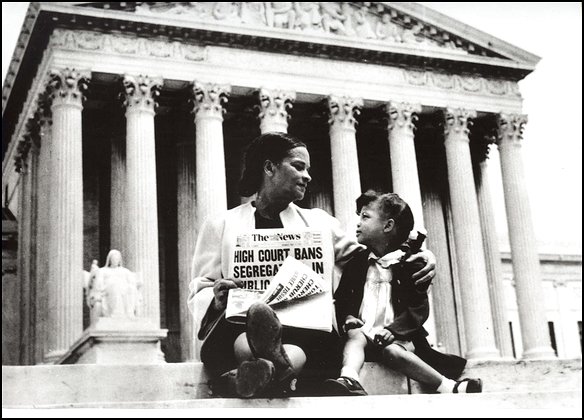http://ualr.edu/race-ethnicity/files/2014/05/brownboardlarge.jpg
LAD #37: Brown v. Board of Education
Linda Brown brought this case to court because she was forced to walk much farther to get to the black school when the white school in her town was much closer. They went to court in Kansas, arguing that the black school were inferior and therefore, not equal to the white schools. In response, the Board of Education argued that they were prepping students for segregation as adults. They also used successful African Americans from segregated schools as proof of black schools not being that bad. Though the court agreed with Brown, the Plessy v. Ferguson case made them side with the Board of Education. Brown took the case to the Supreme Court, where, after much deliberation, it was decided that separate cannot be equal, therefore, segregation violates the Fourteenth Amendment. This overruled the decision in Plessy v. Ferguson and led to more desegregation in other areas, even though it did not have to do with other segregation.
http://images.politico.com/global/2015/01/16/150116_scotus_marriage_gty_629.jpg
This reminded me of the recent case of Obergfell v. Hodges case which was a major gay rights victory, making gay marriage legal.













